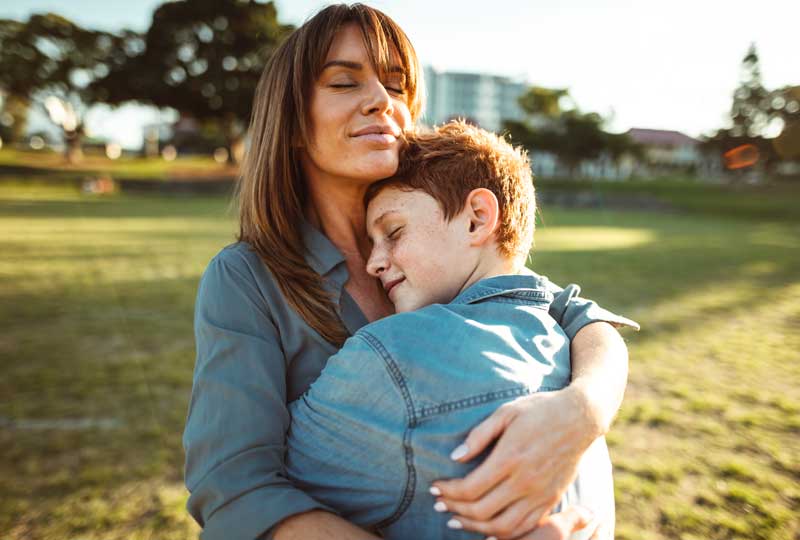In a recent Twitter Spaces chat, area teens had questions about getting mental health help — and Vanderbilt mental health experts had answers.
A recent Twitter Spaces chat between members of the Boys & Girls Club of Middle Tennessee and experts from Vanderbilt Health unearthed deep questions from teens about mental health — and teen-friendly answers from Vanderbilt physicians and researchers. In this three part-series on My Southern Health, we’re sharing some of the best takeaways from that conversation to help teens who may be struggling with their own mental health — or who may be trying to help a friend in need.
To listen to the conversation in full, be sure to tune into Season 3, Episode 1 of Vanderbilt Health DNA: Discoveries in Action, and then follow along for more episodes on mental health.
The question: If we’re struggling, how can we ask for help with mental health? What are some resources we have access to?
Expert advice: Know your options.
“One thing you can ask yourself is this: If I replaced the issue here of mental health with some other sort of issue — physical health, school help, etc. — what would be the easiest way for me to get help for myself? And how can I activate that in this situation?” said Jessika Boles, Ph.D., CCLS, a certified Child Life Specialist at Monroe Carell Jr. Children’s Hospital at Vanderbilt. “Is it going to my mom and dad? Is it going to a teacher? A friend? A pastor? A doctor?”
“Being mindful about how those support networks happen in your community will help you find support more quickly,” Boles said, “versus trying to use pathways that may work for other communities, but just don’t seem as accessible for yours.”
Expert advice: Consider online mental health help.
“I think there’s a lot of opportunity for us to innovate in the way that we’re providing mental healthcare — and I’m excited to see where that leads.”
“We’re seeing significant innovations in digital ways to connect with therapists and with treatment,” said Dr. Meg Benningfield, Division Director for Child and Adolescent Psychiatry for Vanderbilt. “But for those of us who experience significant challenges in mental illness, I think it’s important to think about engaging with traditional medical services to make sure that we are screening for potential medical illness that could be contributing to mental health — and to get the indicated support when it’s necessary.”
“I do think that we’re going to continue to see better and better innovations in the digital space that’ll continue to support health and potentially even provide treatment,” Benningfield said. “We thought that therapy had to be done face-to-face in a therapist’s office and what we’re learning is that connecting over video chat and connecting by phone can actually be just as powerful as being present in person. I think there’s a lot of opportunity for us to innovate in the way that we’re providing mental health care — and I’m excited to see where that leads.”
Expert advice: Make the most of mindfulness.
“There are some apps that I encourage teens to use for handling general stress,” Boles said. “Calm is a really good app where you can use music, affirmations, sounds and imagery to help yourself relax. Another good one is Headspace — it has guided meditations to help you get into a mindfulness state so you can really focus on your body, your breathing and what you’re feeling. And then there’s a really fun one called Mood Potatoes, where you actually track your mood throughout the day, using little potato emojis to summarize how you feel in that moment. These are some really useful tech tools that can be incorporated day to day.”
“These tools are wonderful, but developing a mindfulness practice does not require a subscription to an app,” Benningfield added. “Mindfulness is a practice of paying attention, on purpose, in the present moment, non-judgmentally. It’s about learning how to notice what is happening in our minds and our bodies in the here and now rather than getting caught up in the past and the future. Developing a daily practice to take a few minutes to focus on your breathing can make a big difference if you are experiencing significant anxiety.”
Expert advice: Do your research.
“But again, those tech tools aren’t replacement for formal therapy,” Boles explained. “If you’re struggling to the degree that it’s more of a mental illness than just struggling to cope, you may want more information about what it means to have depression, anxiety or bipolar disorder. For that, I recommend kidshealth.org.”
“It can be really hard to find a mental health provider who is accepting new patients and who is affordable,” Benningfield said. “I recommend starting with your primary care provider. Many pediatricians are becoming more comfortable talking to kids and families about mental health assessment and can help you decide whether you need additional help from another professional. Some insurance companies also offer help finding a provider. In Tennessee, we have a mobile crisis service that is there to help 24/7 365 days a year. You can call 855-274-7471 to reach them. The most important thing is not to give up!”
Vanderbilt Health DNA
The current season of the Vanderbilt Health DNA: Discoveries in Action podcast explores how the current watershed era of change impacts our mental and physical wellbeing. Episodes so far in Season 3 have covered new pathways for suicide prevention, childhood anxiety and more.

